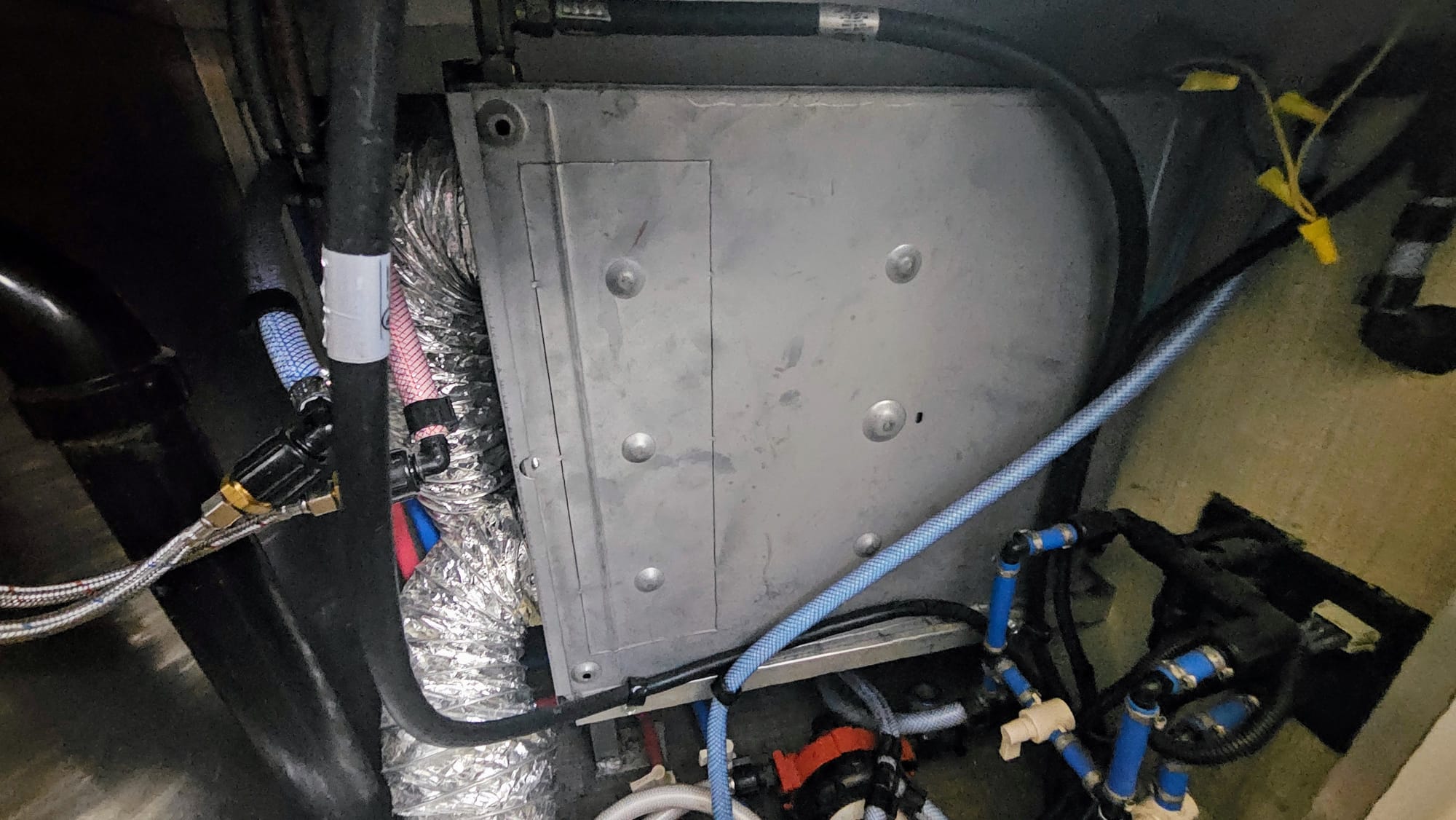The race to get our furnace repaired before temperatures drop to freezing
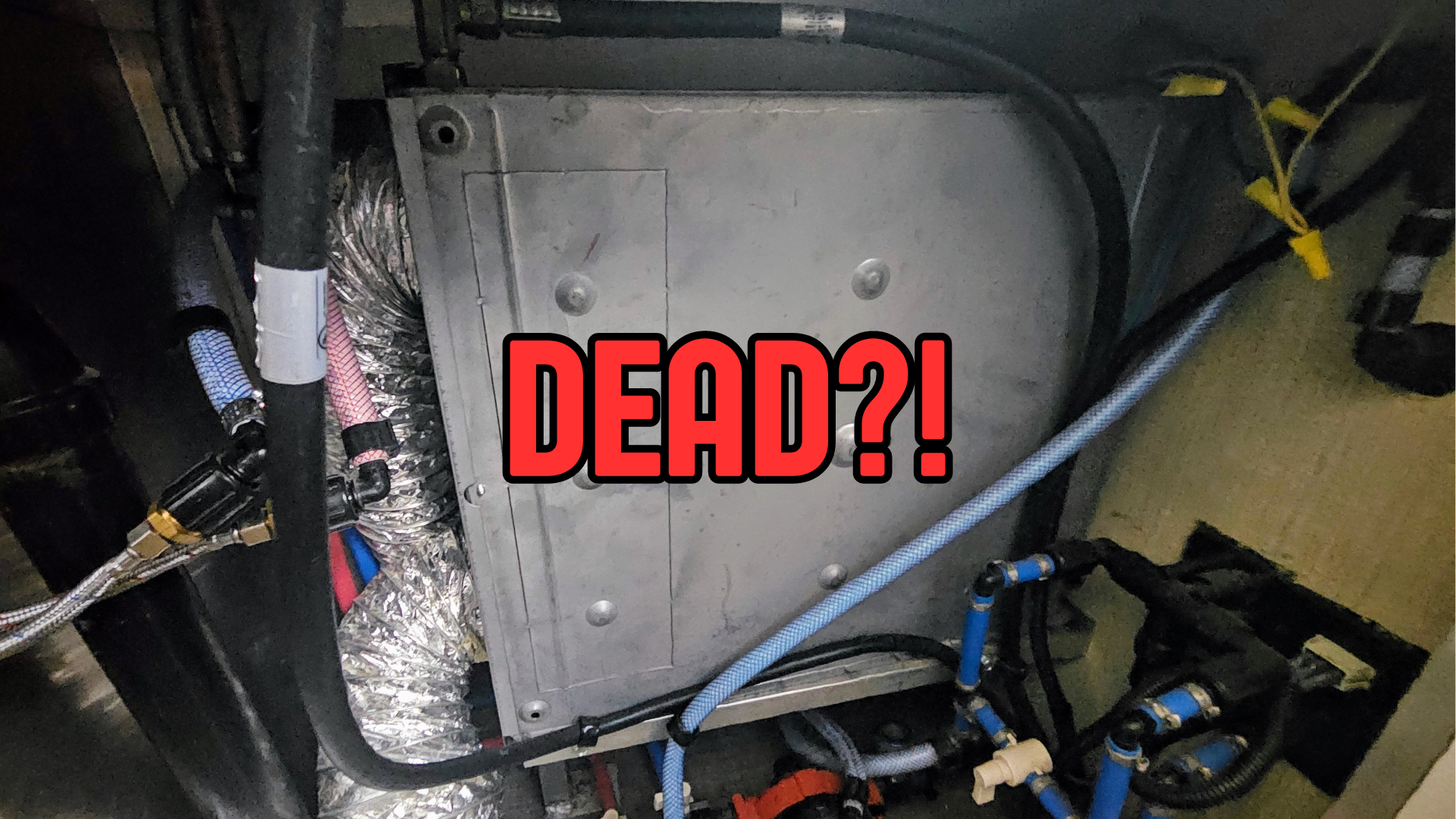
Continued from Camping in cold fall temperatures...with no heat!
To people who live in houses, nightly lows in the 40s might not sound too cold as long as everyone stays inside. The insulation on houses is much better than RVs, especially our RV. Despite the added steps we've taken to keep our rig temperature controlled as much as possible – adding extra flooring, insulating curtains, using tank and line heaters – we are still at the mercy of the weather gods. When the temperatures heat up or cool down, we feel those changes inside our trailer very quickly. Because of this, we really want every piece of temperature-controlling equipment in working order.
There are many secondary repercussions of not having a working furnace. As most of you know, Nicole works as a therapeutic harpist, which means she travels with at least one harp at all times. Harps need to be stored in a moderate heat and humidity range, or else they can break strings, or worse, crack their wood to an irreparable extent. Setting our rig to pleasant heat and humidity levels helps us stay comfortable, but it keeps the harps in working order. Now, as our nights have brought inside temperatures down into the 50s, we were inching toward a dangerous climate for the harp. Humidity levels were also high, and we had no furnace to cut them down. This meant Nicole needed to mostly keep her harp in its insulated case and only take it out when she needed to use it.
The cold also impacted our joints and muscles. After a cold night of sleep, Nicole woke up and immediately tweaked her neck. She must have been tensing all night without realizing it, and as soon as she activated those muscles, they retaliated. Without heat to aid in recovery, her neck would start to feel better throughout the day, but night would roll around again, and she'd wake up feeling worse. Her pain and stiffness lasted four days without any reprieve.
It goes without saying that the pain made it hard for her to sleep, but the cold in general messed up both our sleep schedules. Whether we were waking up to run the space heaters, grab extra blankets, or throw a Hail Mary and try to prime the propane tanks again, we were up at all hours. So was Lily, who definitely felt the chill if she wasn't wrapped tightly in her blankets. Tanner is a typical Eskimo, so he was the outlier.
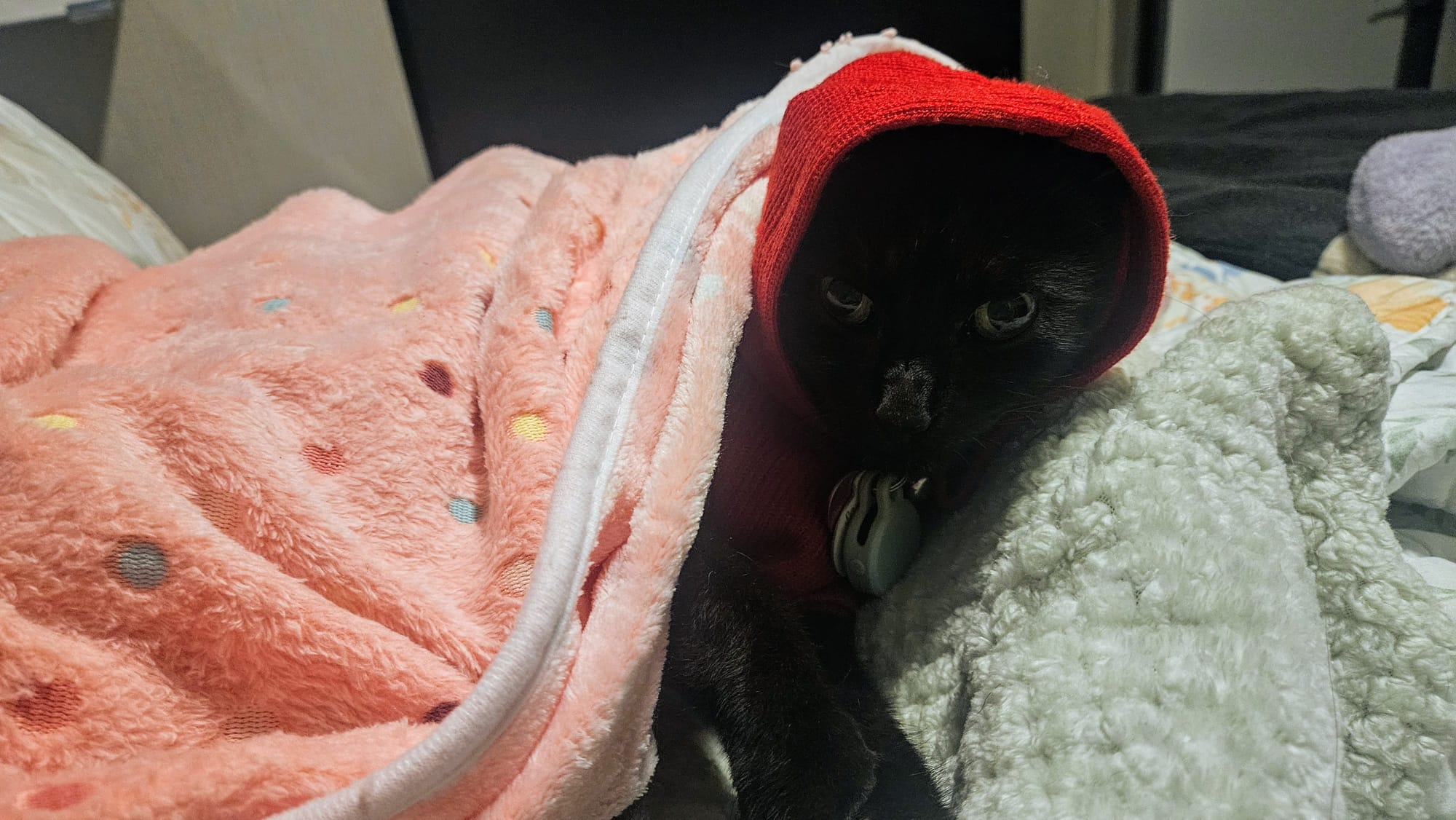
We were preparing to head further north in New Hampshire than we had ever gone before, to the northernmost town before the Canadian border. We should have been looking forward to the gorgeous landscapes and emerging fall colors but instead, we were dreading the cold.
To catch you up, we had already taken the trailer to two service appointments at Central NH Trailers, the local ATC dealer. Because none of our initial troubleshooting steps worked, we assumed that the repairs most likely to work would be replacing the entire control board and replacing the propane valve. Central NH agreed, and so once both parts were in, we displaced ourselves again so they could install the parts.
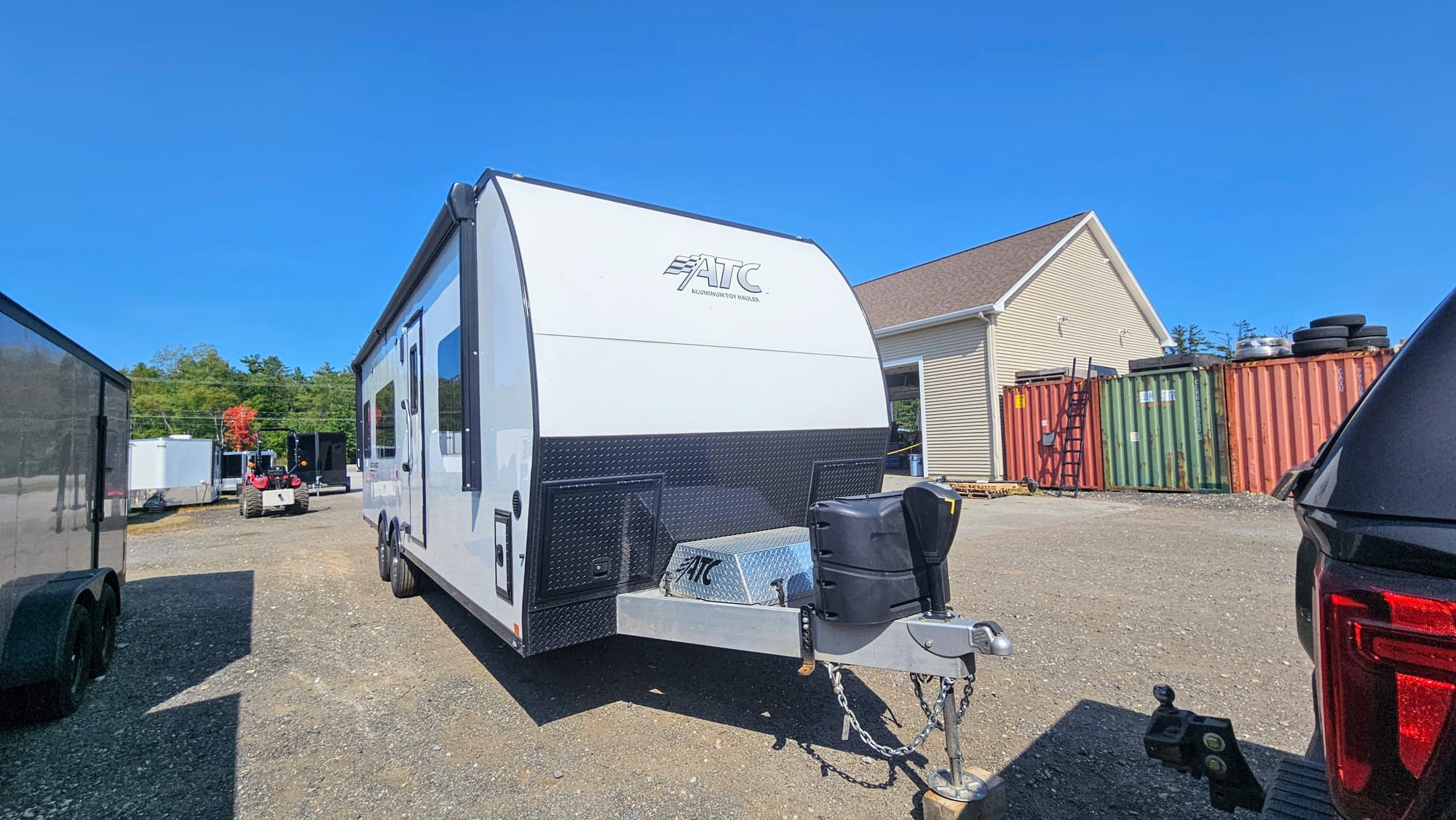
The next day, after another night of the furnace not operating properly, we discovered that Central NH replaced only the control board, tested the furnace which seemed to be working, and called it a day. They didn't replace the valve. The problem with that was, sometimes our furnace did turn on at first, but then it would short cycle. All signs pointed to this being a valve problem because the valve opens to let propane in, so that it will ignite the furnace, which will blow the hot air through the ducts. At this point, we had tested all the other major components – the thermostat, the regulator, the Gas Stops, the blower, the igniter, and now the control board. When attempting to start, we would hear the furnace kick on, but 99% of the time, we didn't hear it ignite, but that 1% of the time showed us that, if the propane was getting in, it would light. We also never smelled propane when the furnace didn't kick on, meaning that no propane was being let in in the first place.
So, when we heard that Central NH did not replace the valve, we were convinced they should have. The tech was not. He said he looked at the valve and it seemed fine. Our only remaining choices were to take the rig back to Central NH for a third time, or to grab the parts we bought ourselves and find someone else. Considering the next day, the tech had called out sick, we were ready to head north and hoped we could find someone else to help us along the way.
Central NH is our first choice for quick repairs because they work on ATCs, but since this was an issue with a third party piece of equipment, we opened our search to any mechanic who knew about RV furnaces. In our experience, sometimes finding a local shop is the best choice. If the person has good reviews and seems trustworthy, we'll give them a go. Only problem was, we were looking on a Friday and hoping to be squeezed in the next day. Last minute and on a weekend was a big ask. Just in case, I also reached out to Camping World to see if we could get a Saturday service appointment. The closest location was in Conway, which would be at least an hour out of the way and would mean driving some rather winding mountain roads. But, going out of the way on a travel day sounded much better than needing to leave our campsite mid-stay, like we had just done.
Camping World never got back to us, and most of the local shops had limited Saturday hours at best, but I did get in touch with Beane RV, a shop just up the street from where we would be staying in Lancaster. He let me know that he would be off for the week, but he recommended a shop in Monroe, right on the NH-VT border. This would be out of the way in the other direction, but at this point, we would take it if it meant getting our furnace back in working order.
Steve, the owner of CH Dana RV Inc in Monroe, put us in his calendar for the following Friday, our next travel day. He also mentioned that he had seen these types of furnace issues a couple of times before and thinks a valve replacement does sound like the next step. We scheduled our appointment for between 9-10am on Friday, September 20. Two days before the official start of fall, and the same day we were supposed to head north, to a primitive campsite near the Canadian border.
We had a great week at Mountain Lake Camping Resort in Lancaster, which we can't wait to share in a future blog post. The days got into the low 80s, but the temperatures dropped drastically at night. We made do with our space heaters and extra blankets. We had full hookups, so we didn't need to worry about running out of battery if we ran our space heaters, but for the most part, we only needed to turn them on for a short while before bed and again first thing in the morning.
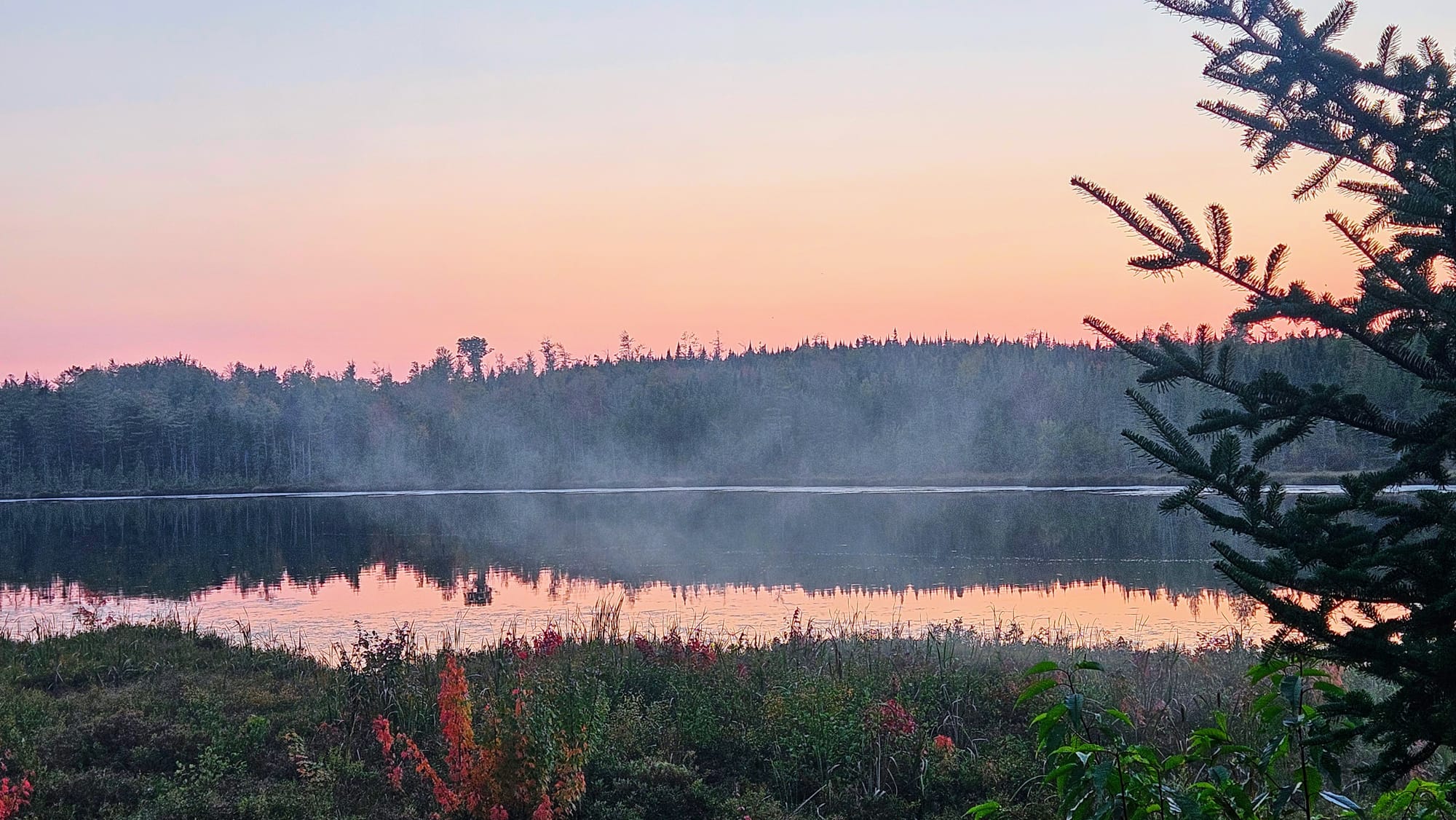
During the week, we debated whether or not to change our next destination. What if our furnace didn't get fixed? Would we really want to camp in one of the northernmost points of the US as we approached the cold seasons? The forecast changed a few times throughout the week, but temperatures would at least drop into the 40s, with possibilities of them reaching the high 30s. There also wouldn't be a lot of sun, which meant the days would stay cool and we wouldn't be getting much solar. If we needed to run our space heaters, we'd be depleting our battery and need to run our generator, which was only allowed a few hours a day. This seemed like a lot of unknowns and potentially a lot of hassle. The goal going up there was to tuck ourselves away in a quiet place surrounded by nature. Freezing our camping culos off while running our noisy generator wasn't quite what we had in mind.
But, what if we did get the furnace fixed? We could stick with our plans, explore somewhere new, and have the peace and quiet we desperately wanted to welcome our fall season. I told Nicole to hold off on making any changes. We could always make a last-minute change if it came to that. Campgrounds weren't filling up because September is a shoulder season, so we had plenty of options if we needed them.
Friday the 20th rolled around, and we got up early to pack for travel and drive the hour down to Monroe. We met with Steve and he gave us his gameplan of what he expected to do with the furnace. Of course, replacing the valve was top priority. Otherwise, he'd run his own diagnostics and let us know what he finds.
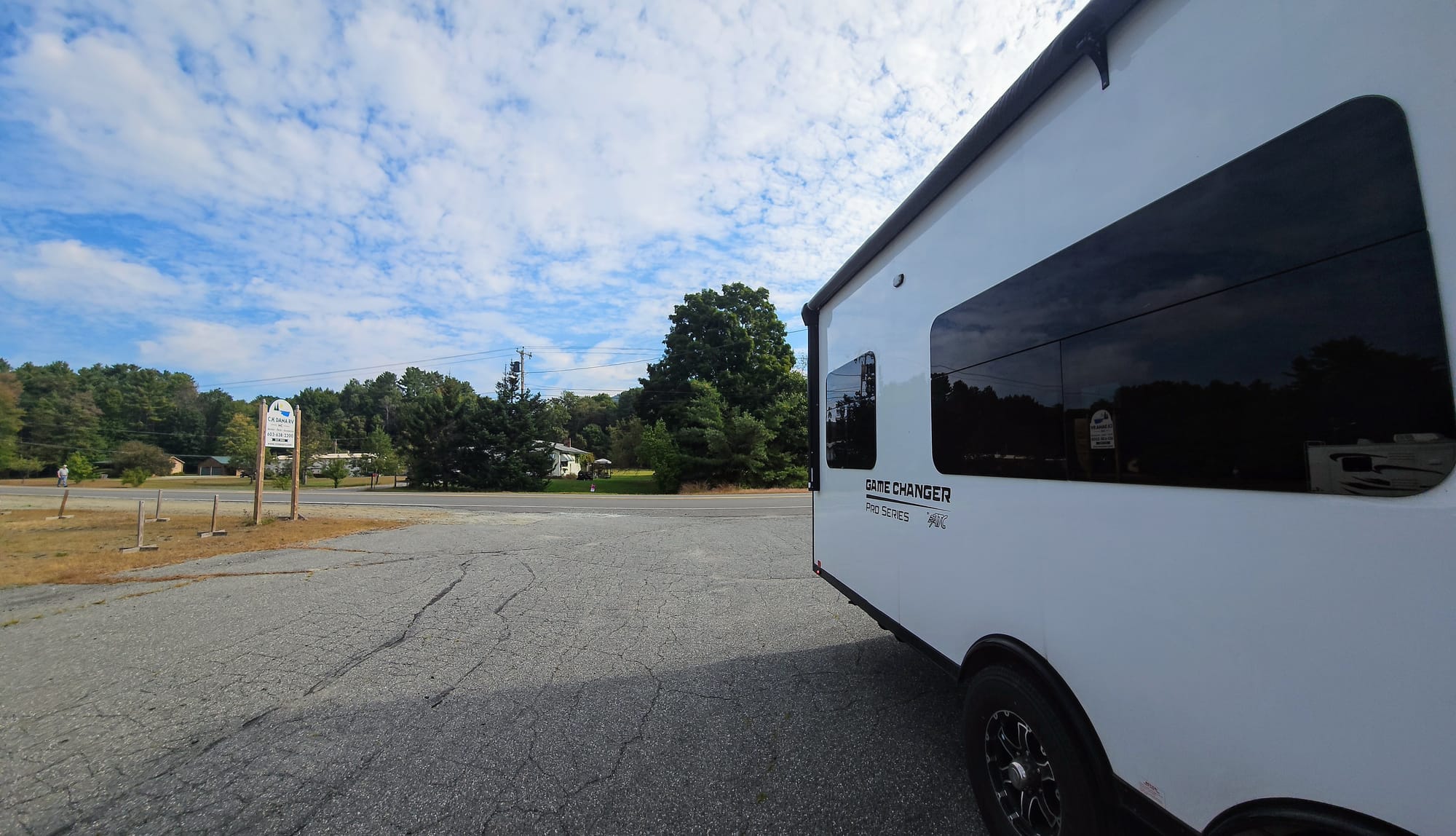
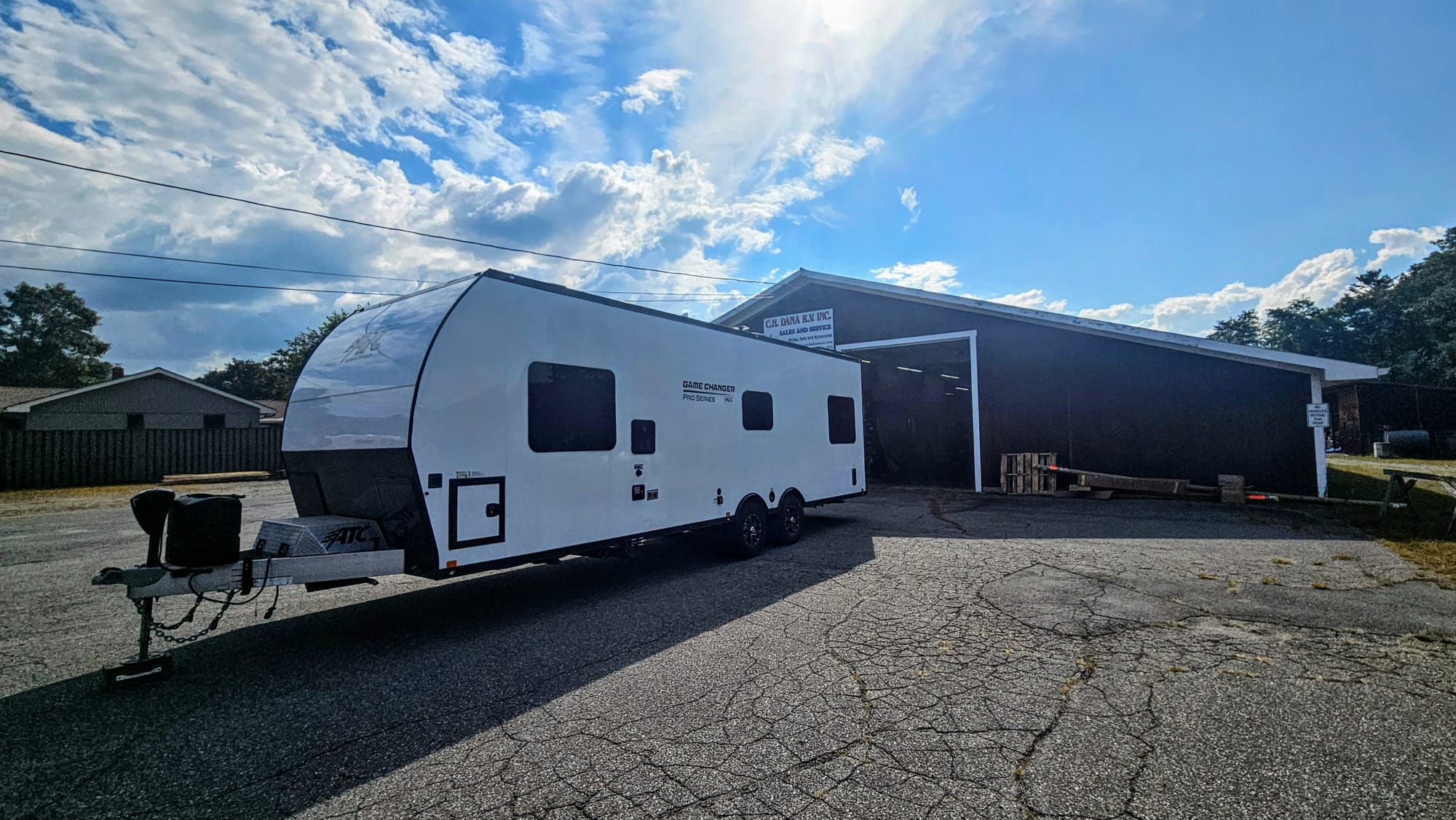
We had at least a few hours to kill, so we headed down the street to Railroad Park in Haverhill, NH. Free town WIFI and a port-a-potty made this a great remote office. We did some work until we got antsy, at which point we went over to the Haverhill-Bath Covered Bridge across the street. NH has 58 covered bridges, and while this doesn't make it the state with the most covered bridges, they are definitely emblematic of this area. This covered bridge is not open to vehicles, so we could walk across it without worrying about traffic.
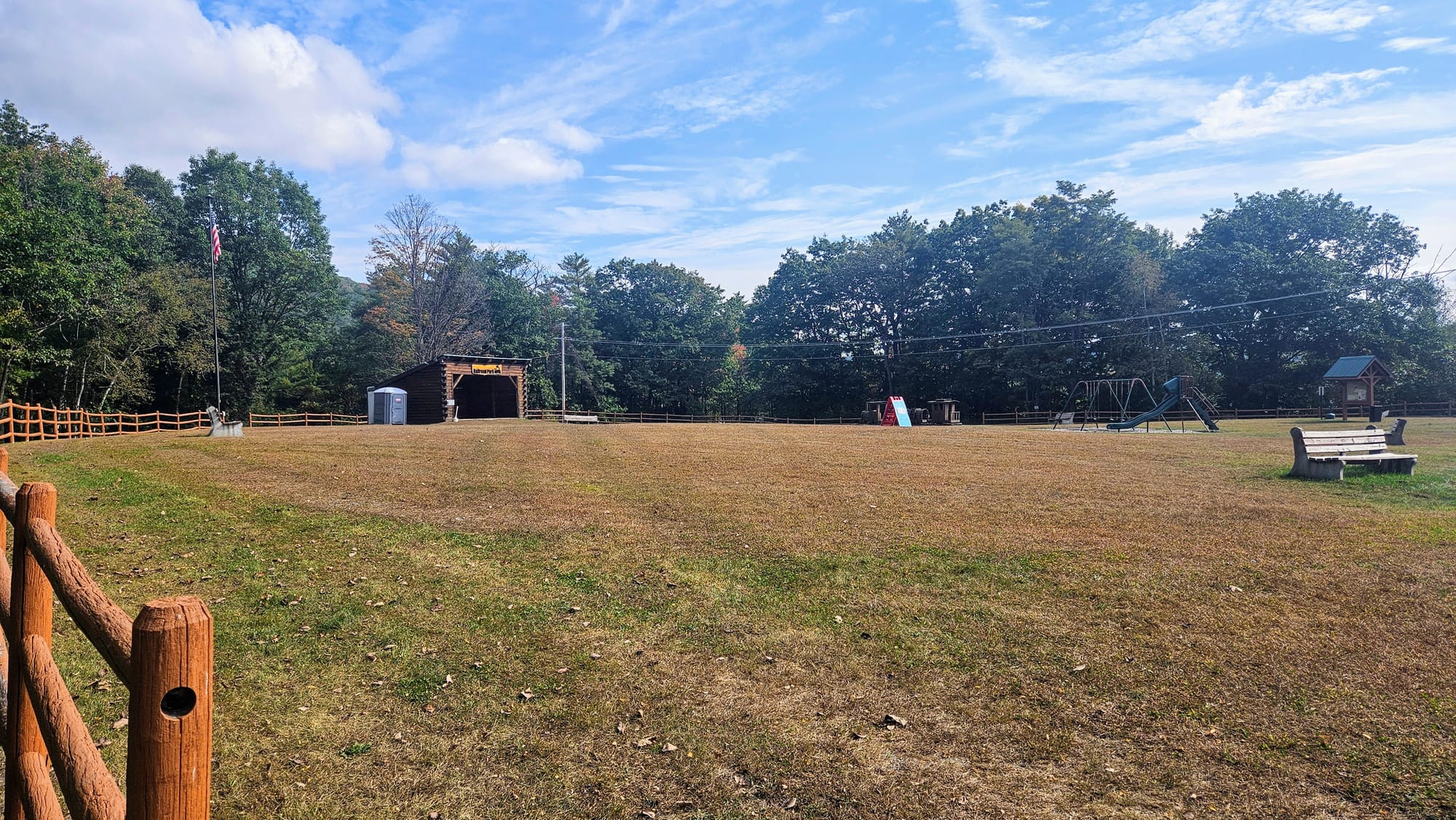
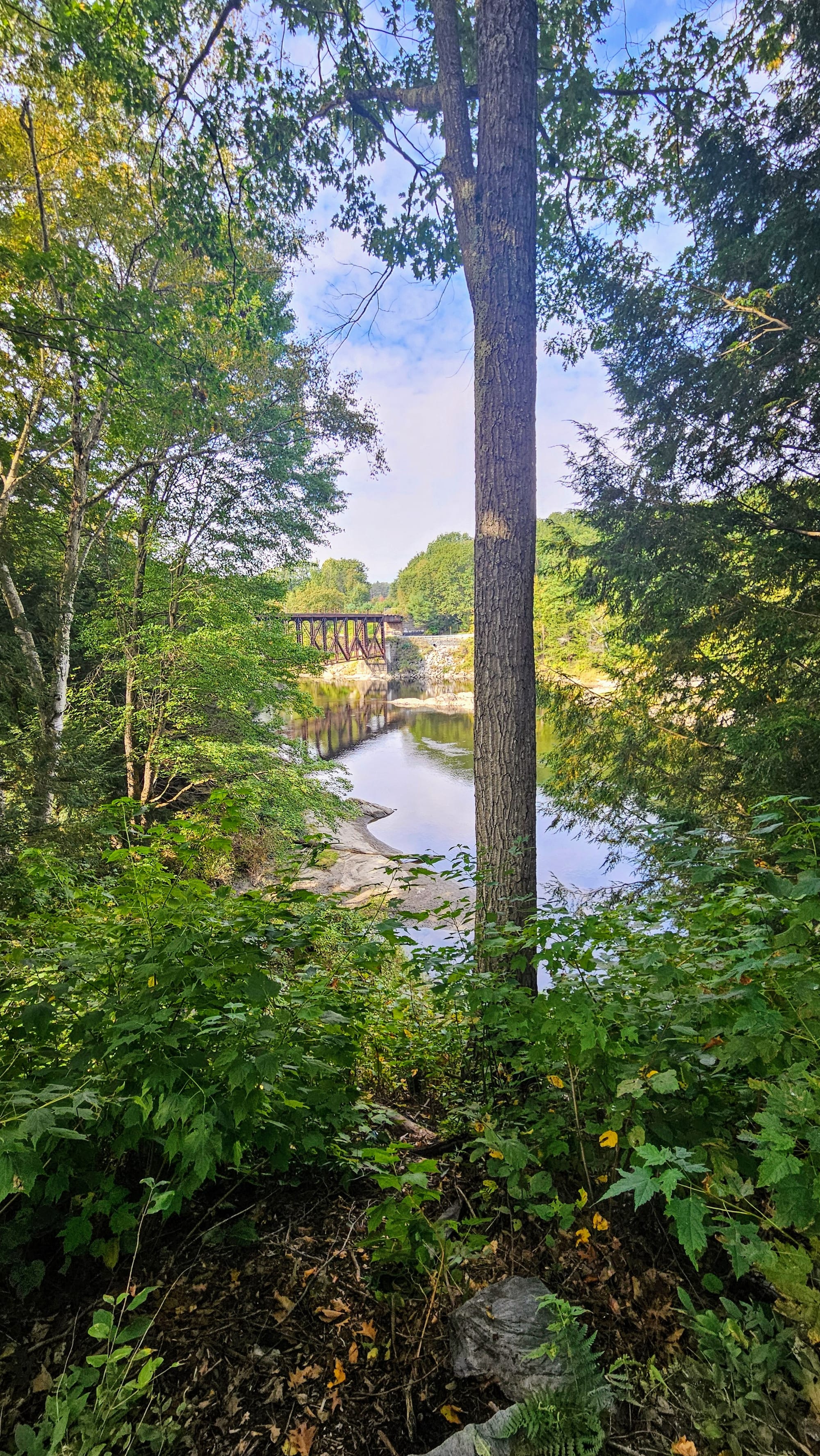
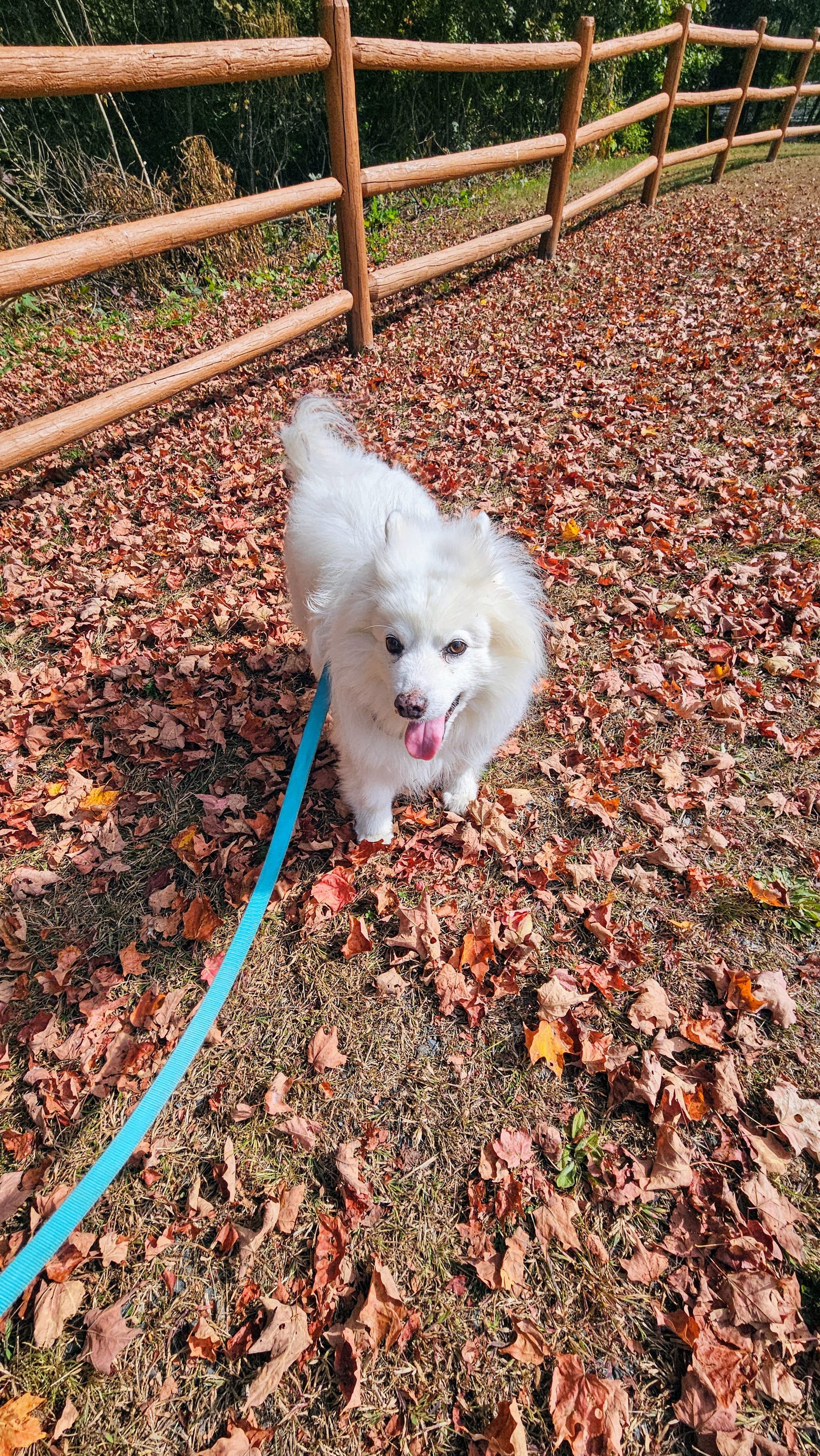
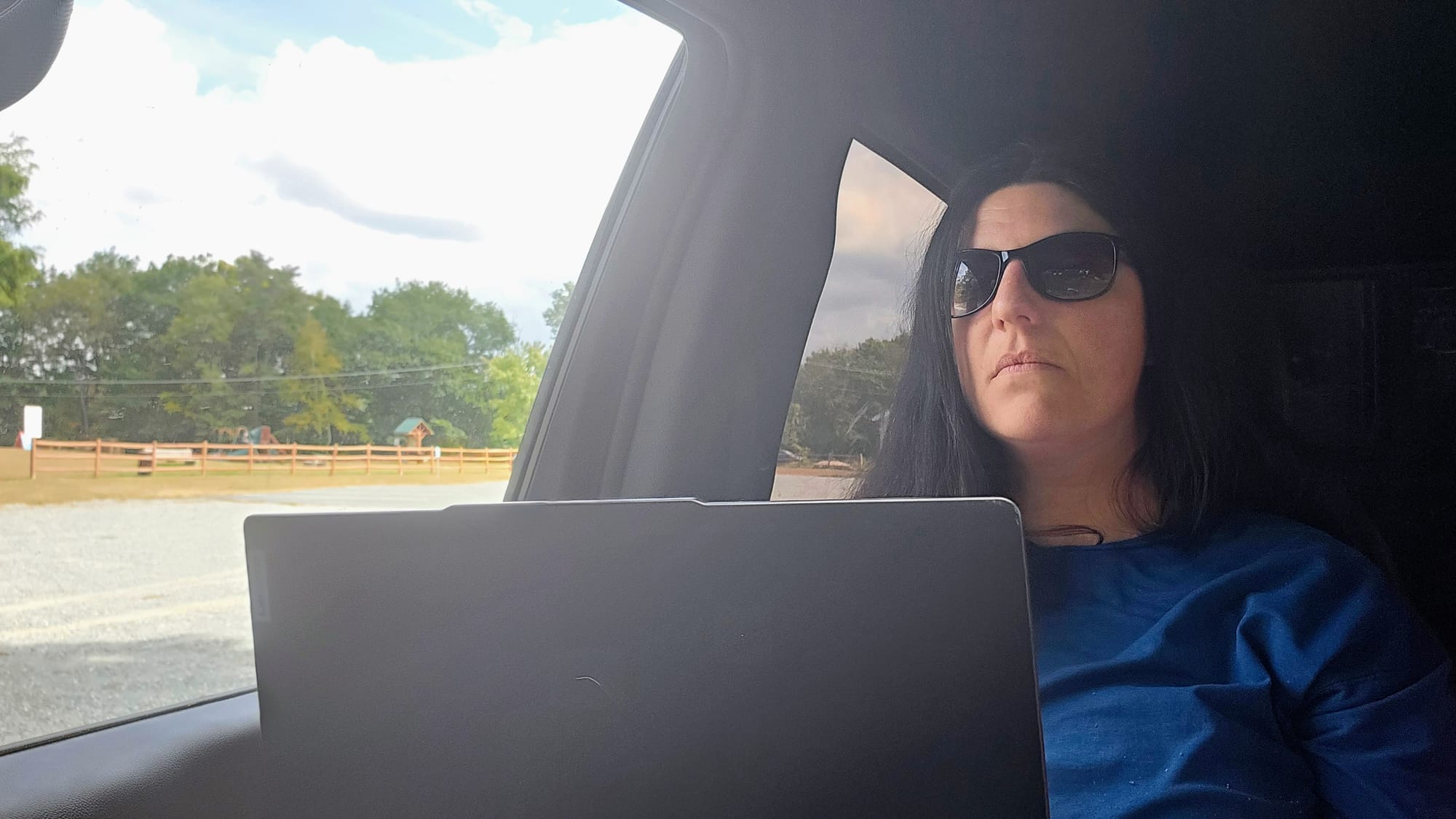
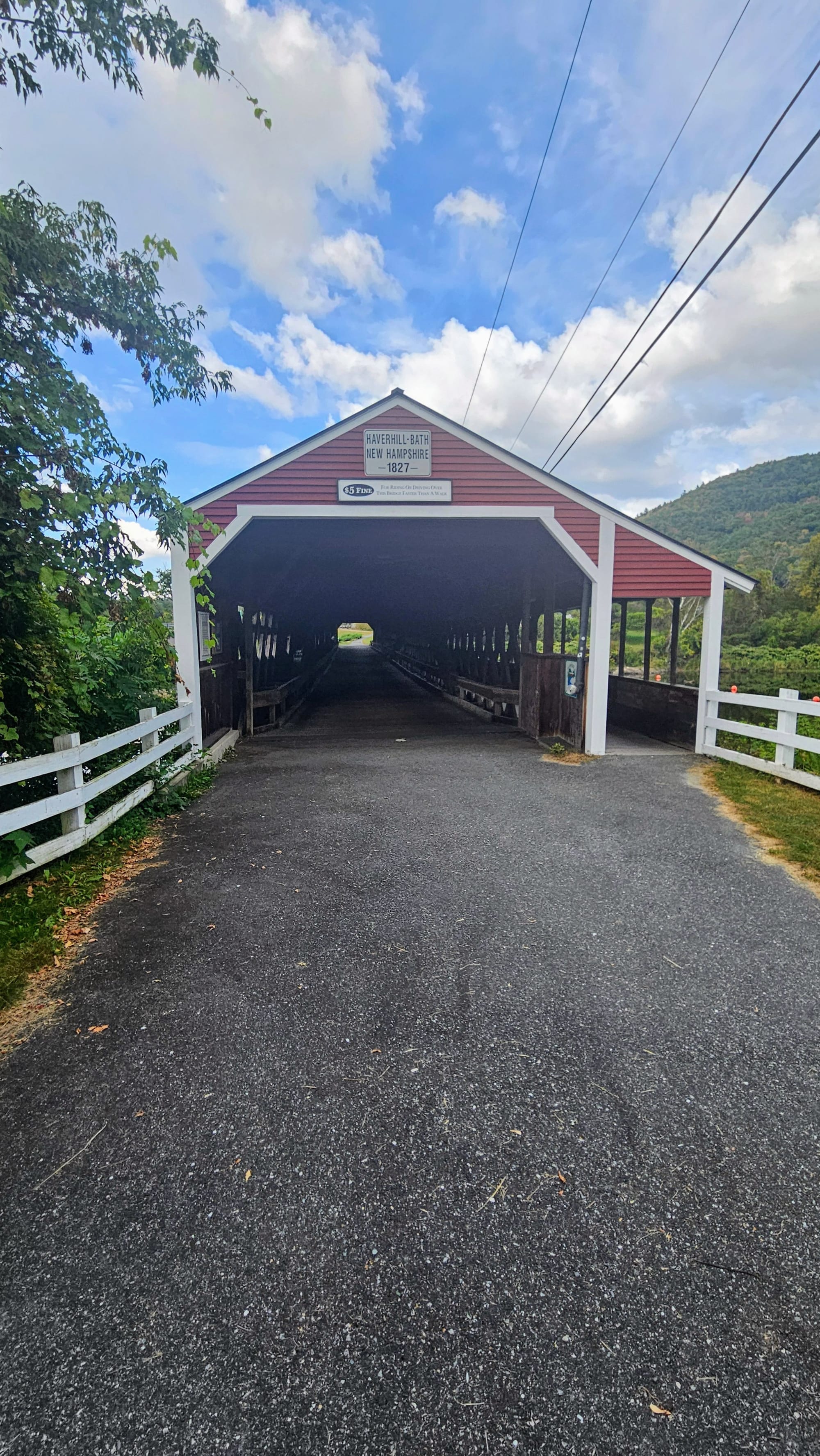
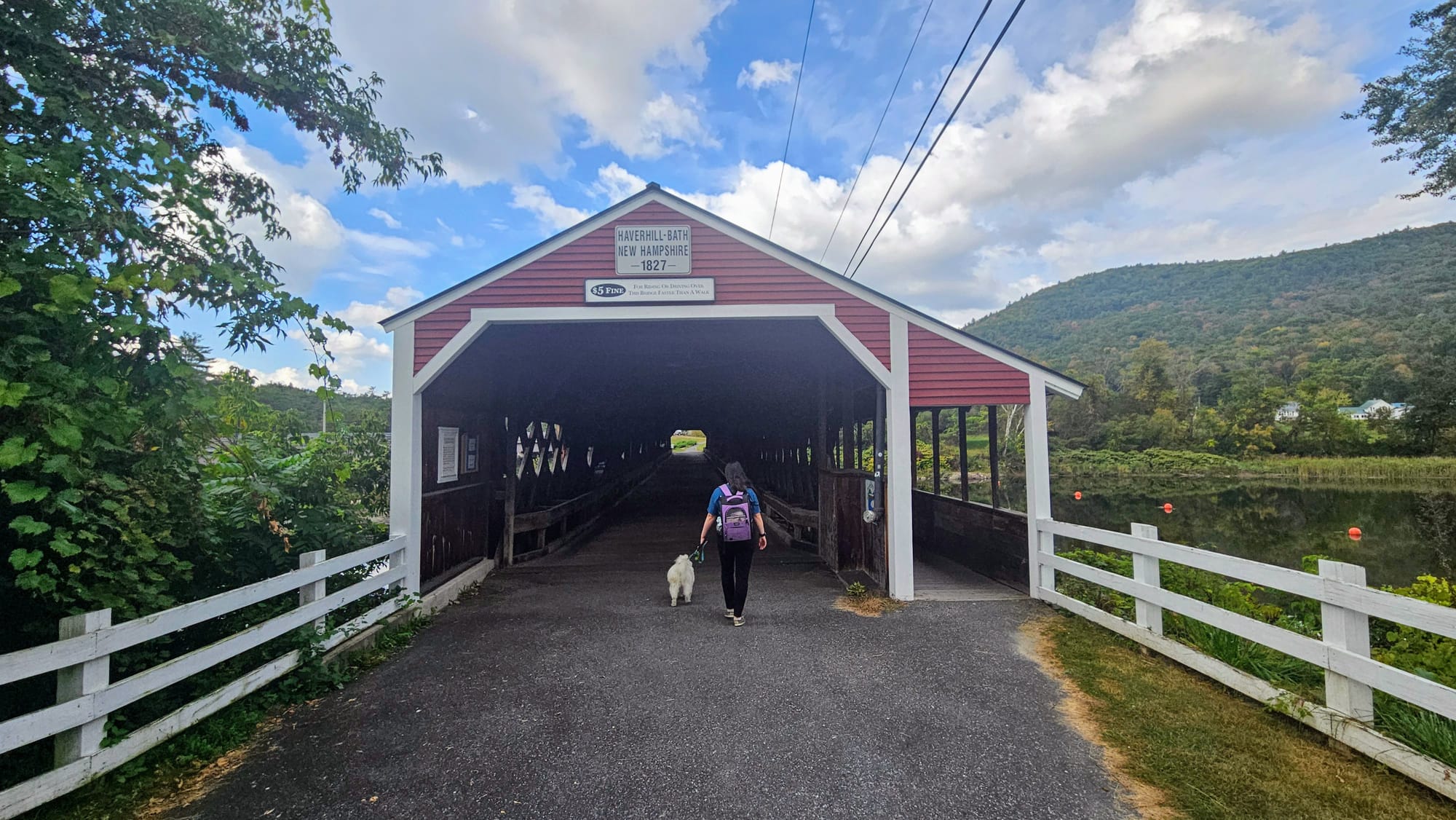
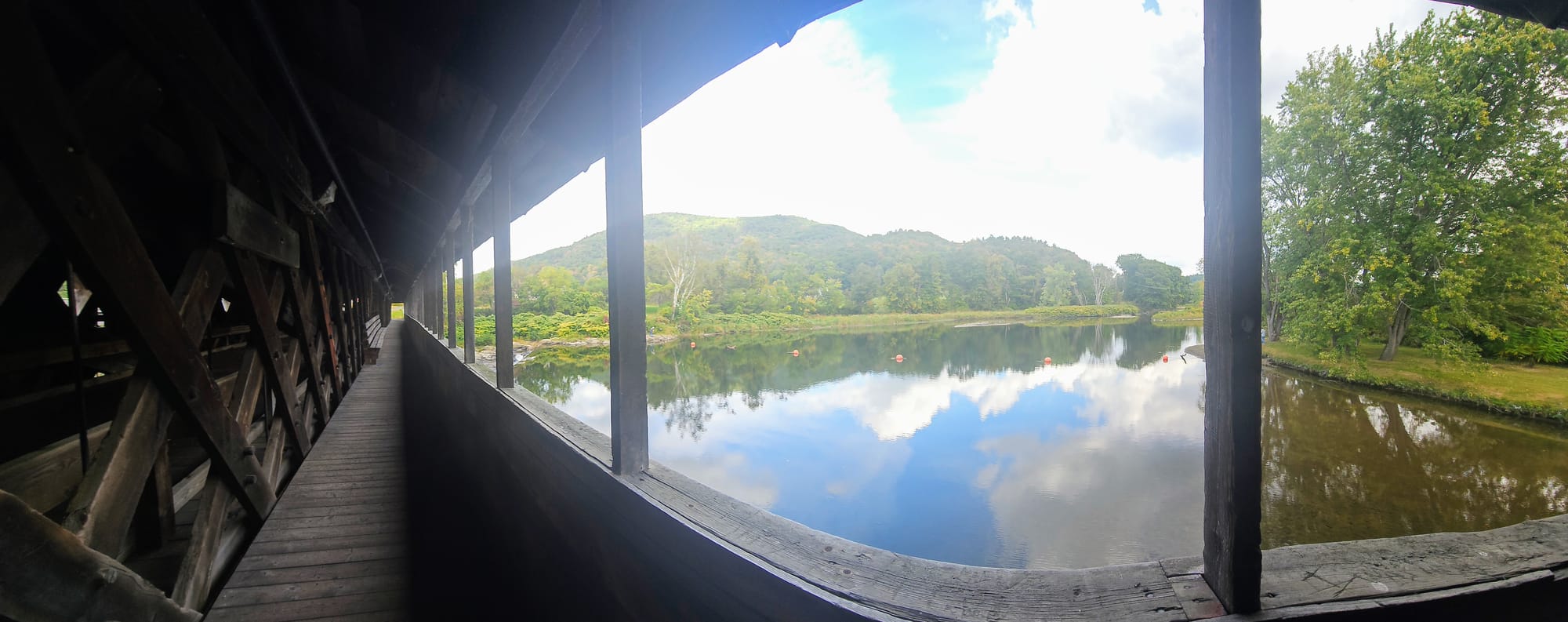
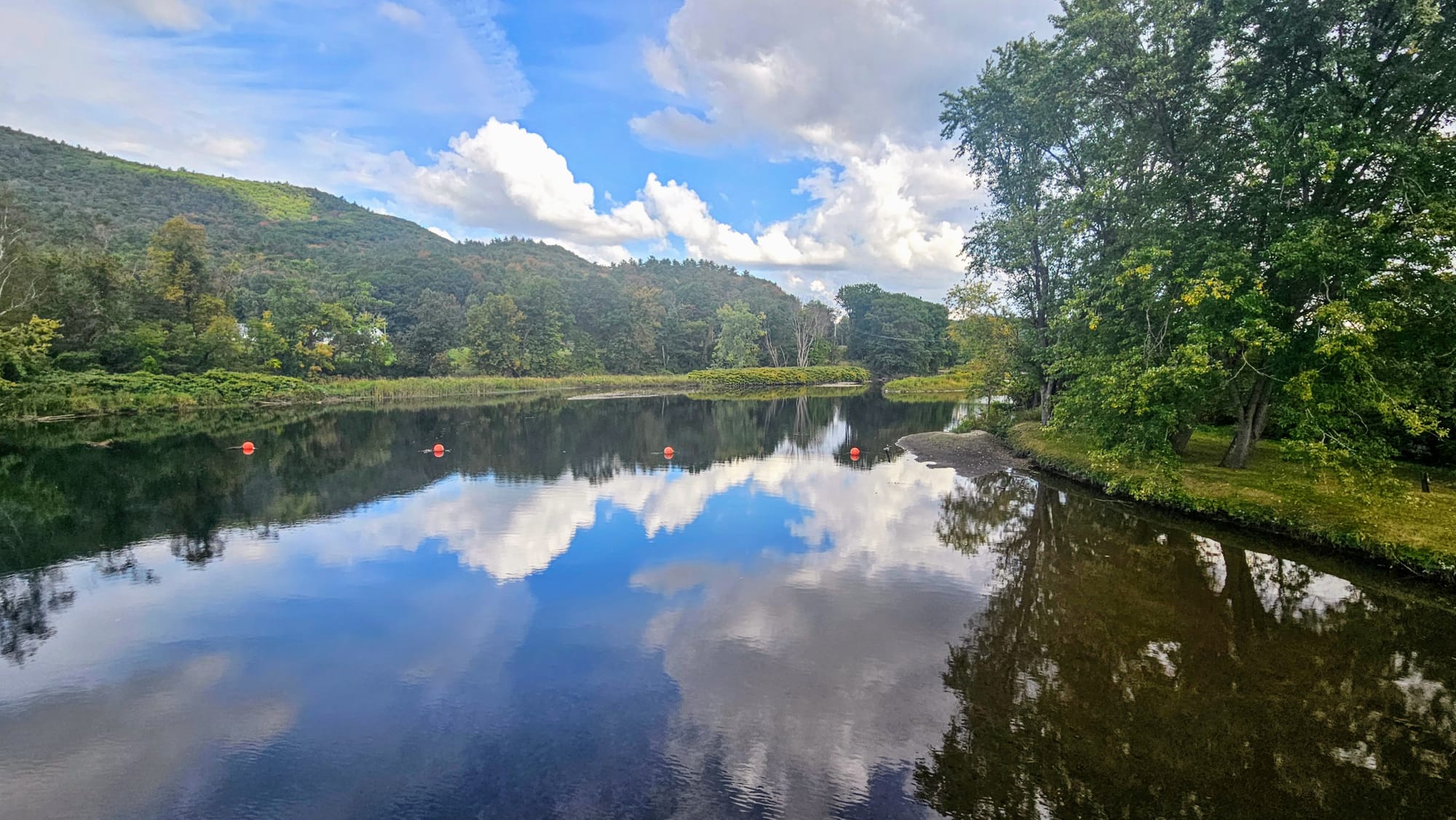
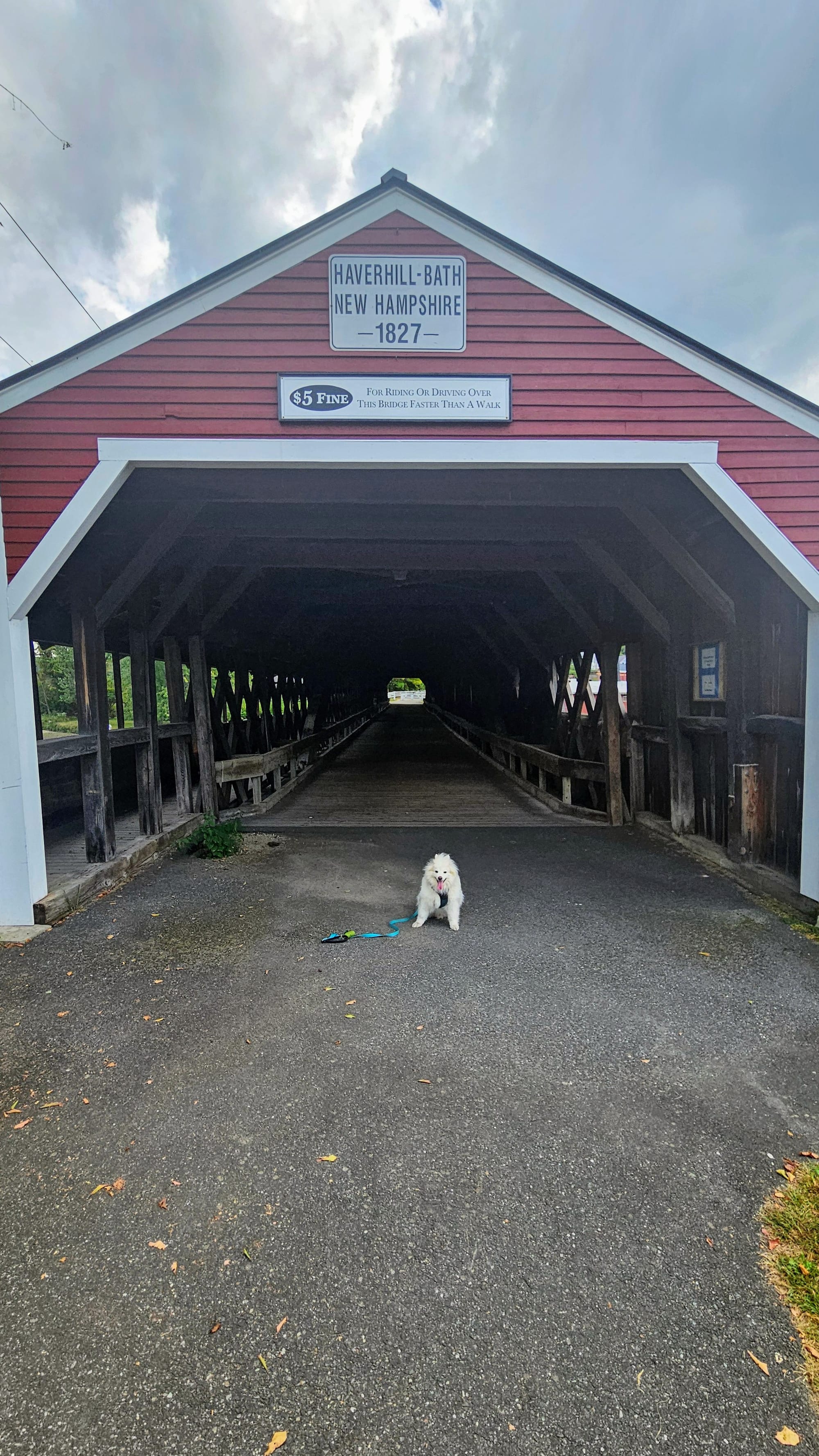
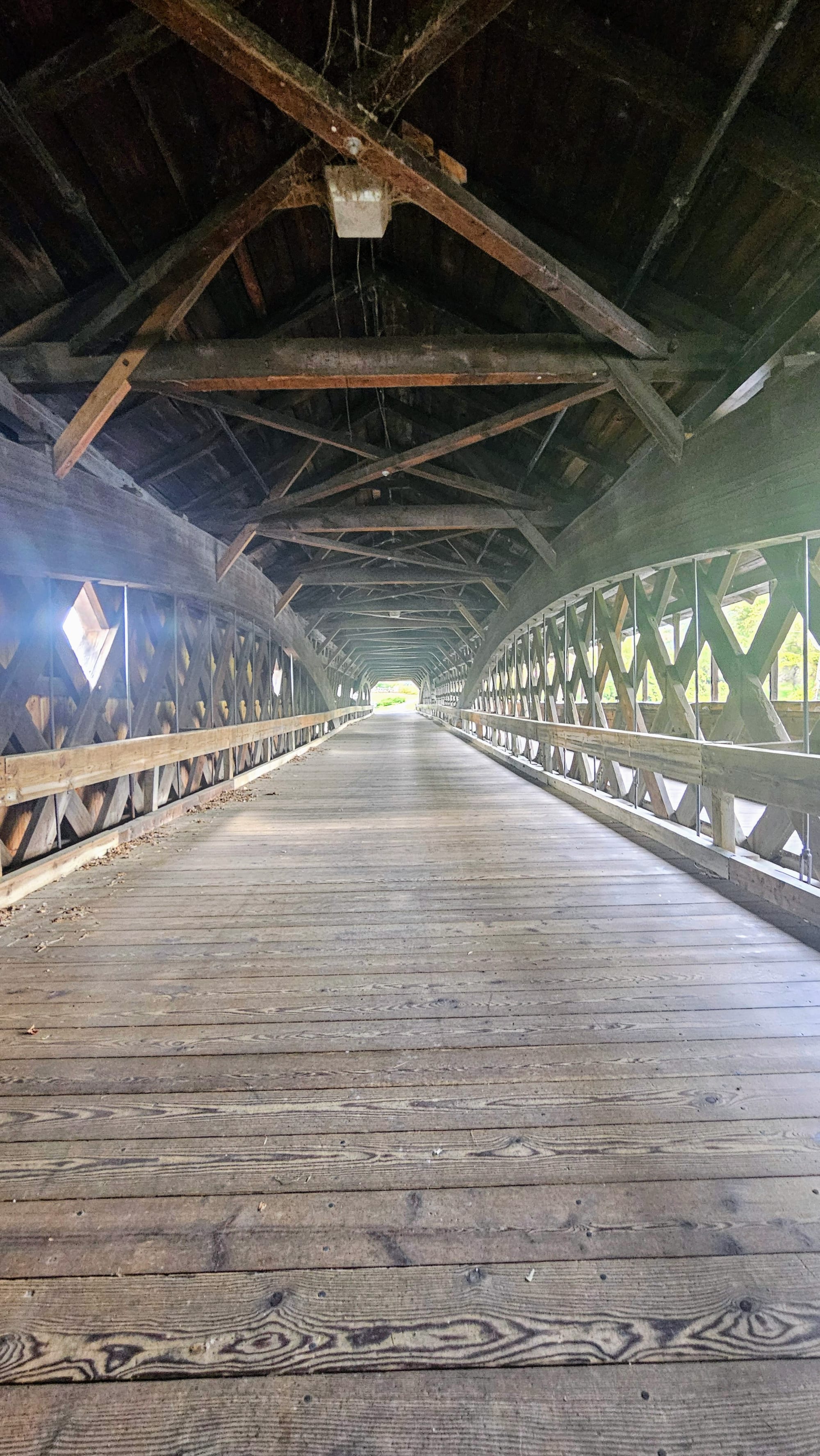
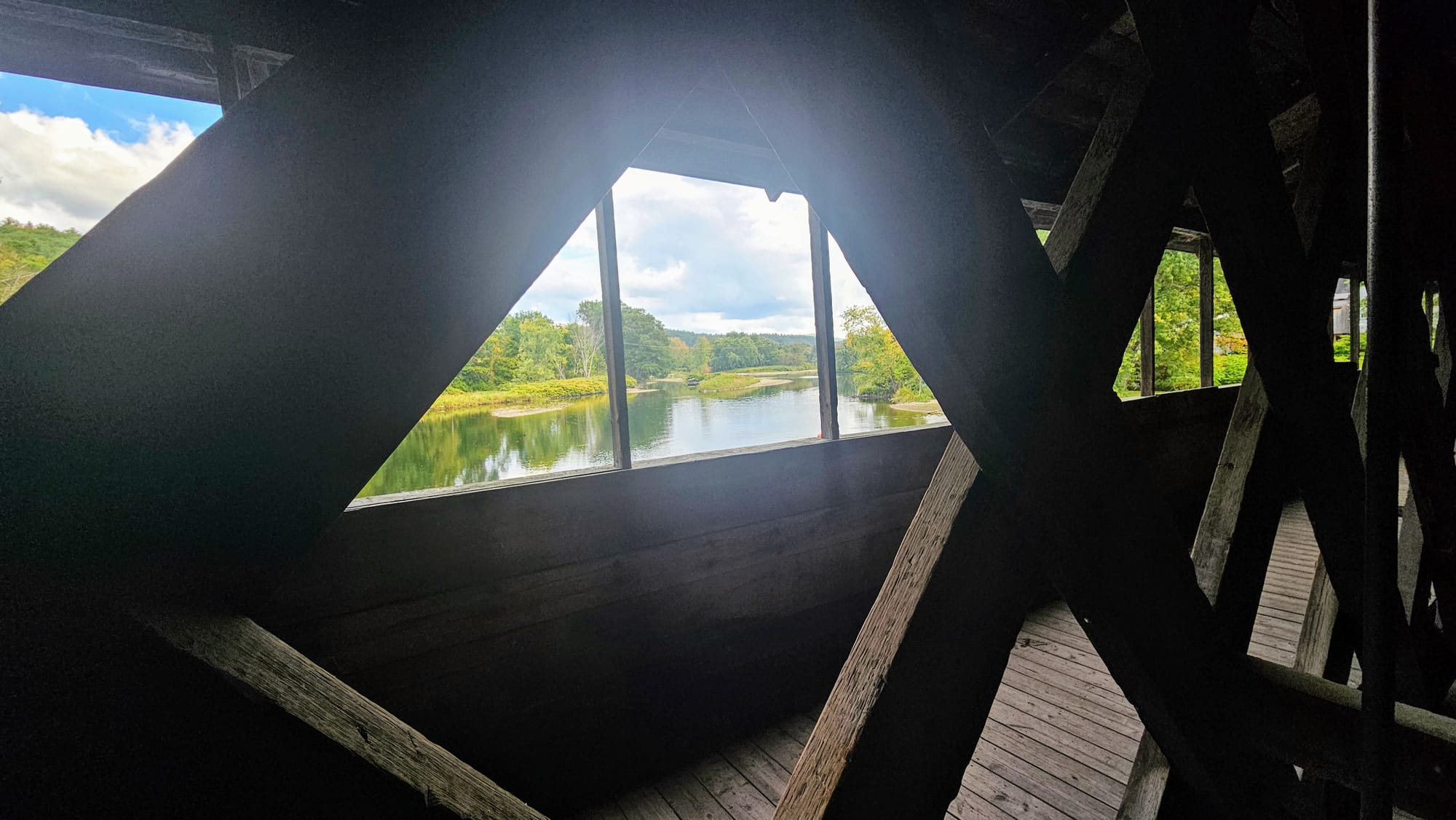
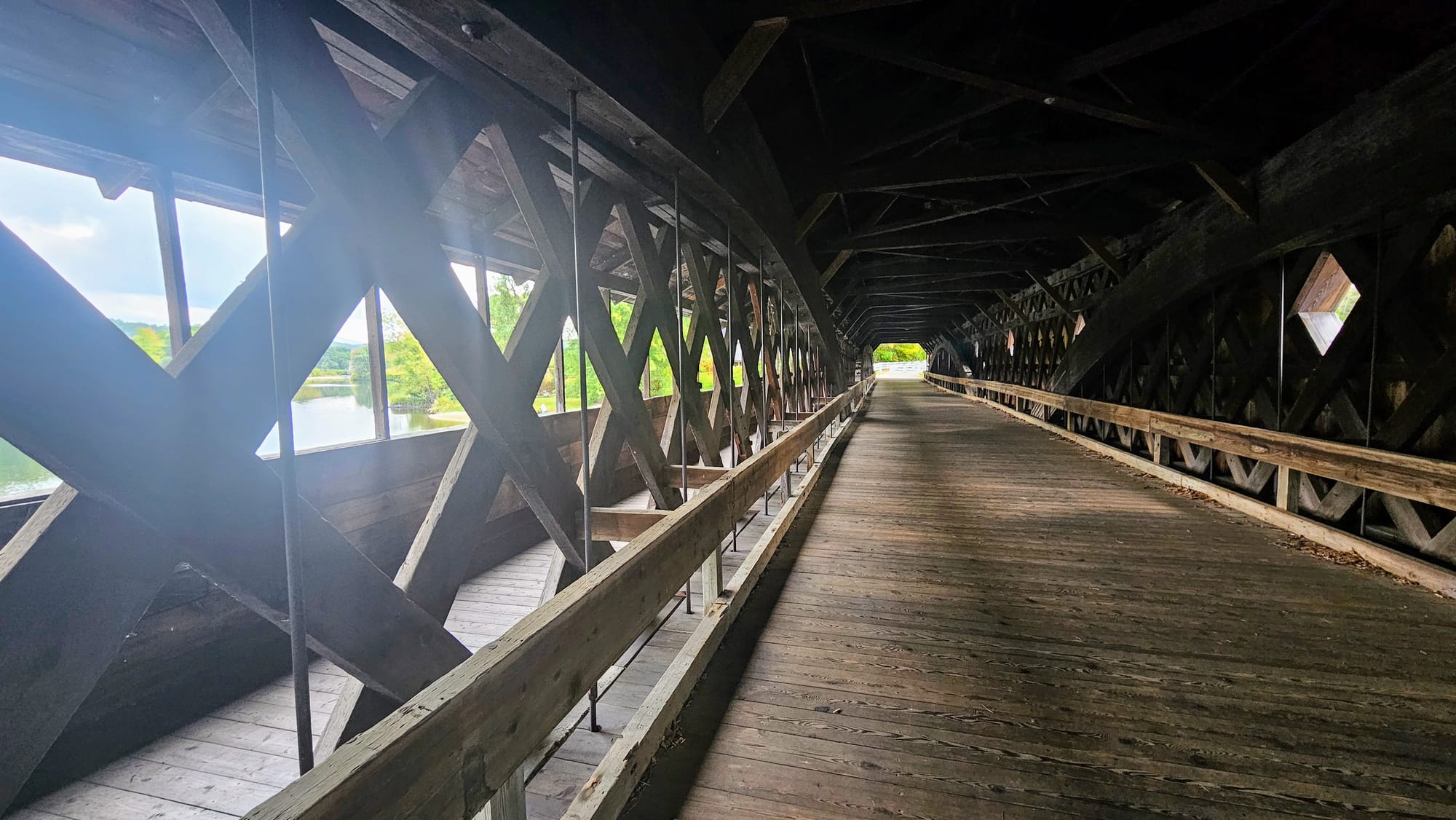
After about four hours, we got a call from Steve. He said the furnace was working and he had been running it for about 20 minutes without issue. We headed back to CH Dana to get the scoop.
Steve is one of those guys who knows everything and takes the extra time to teach it to you. When we got there, he had printed a page of photos to show us what he found and all the repairs he made. He then spent a half-hour walking us through things. At the same time, we turned the furnace on and off to make sure it would kick on consistently.
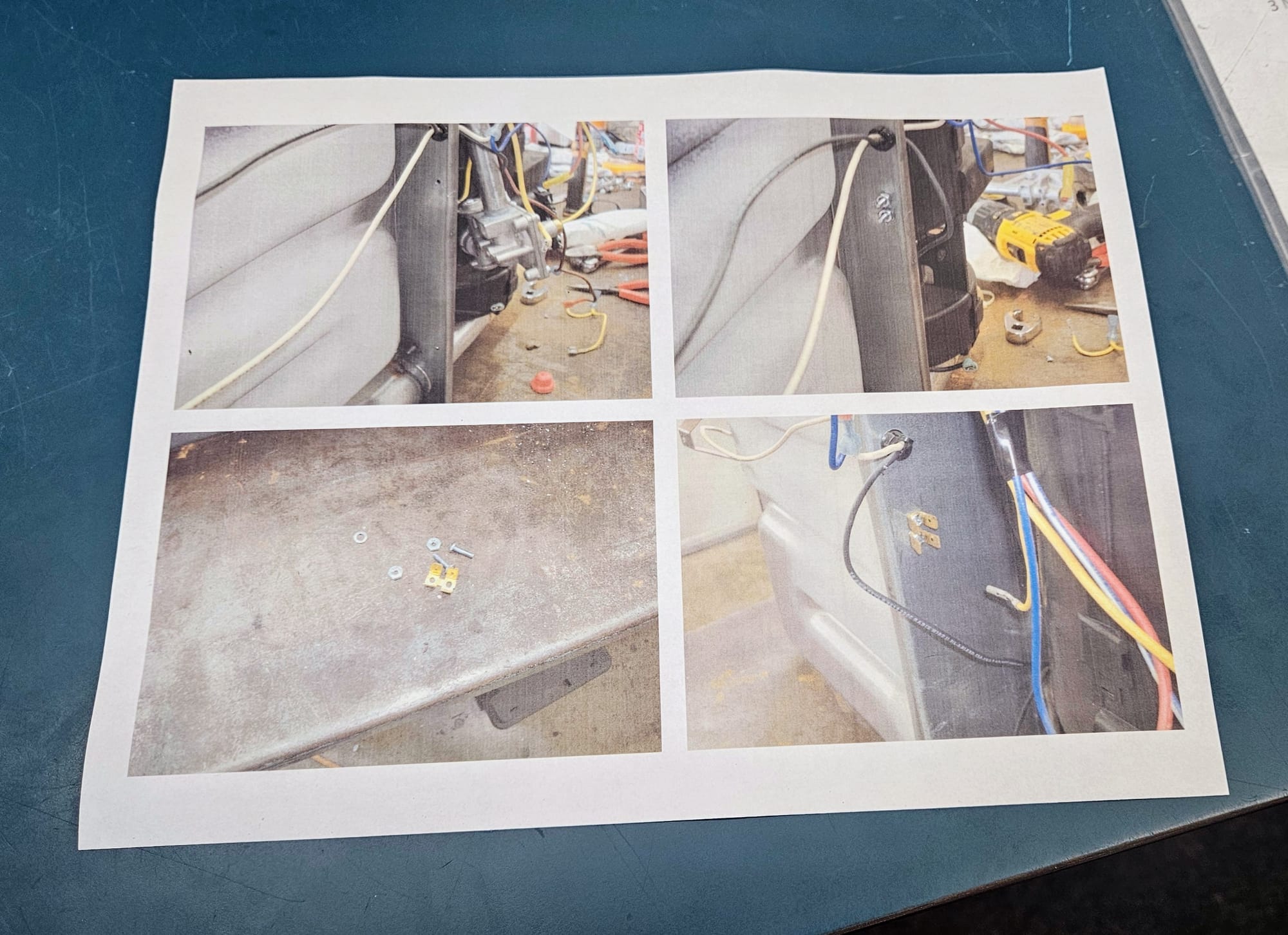
The conclusion? Well, there wasn't actually a solid one. When Steve got in there, he noticed a few potential culprits. Many connections were loose, including some on the control board...the new one that was just installed. He noticed a grounding wire that needed to be re-secured. He moved another wire that was at risk of getting crimped. But, his best guess of the main culprit? The propane valve. When he took the old one off, he noticed that it was corroding and wearing in multiple places. No real idea if it was like that from the start or if it got that way over time. Given our timeline of furnace issues, we're guessing it was just defective.
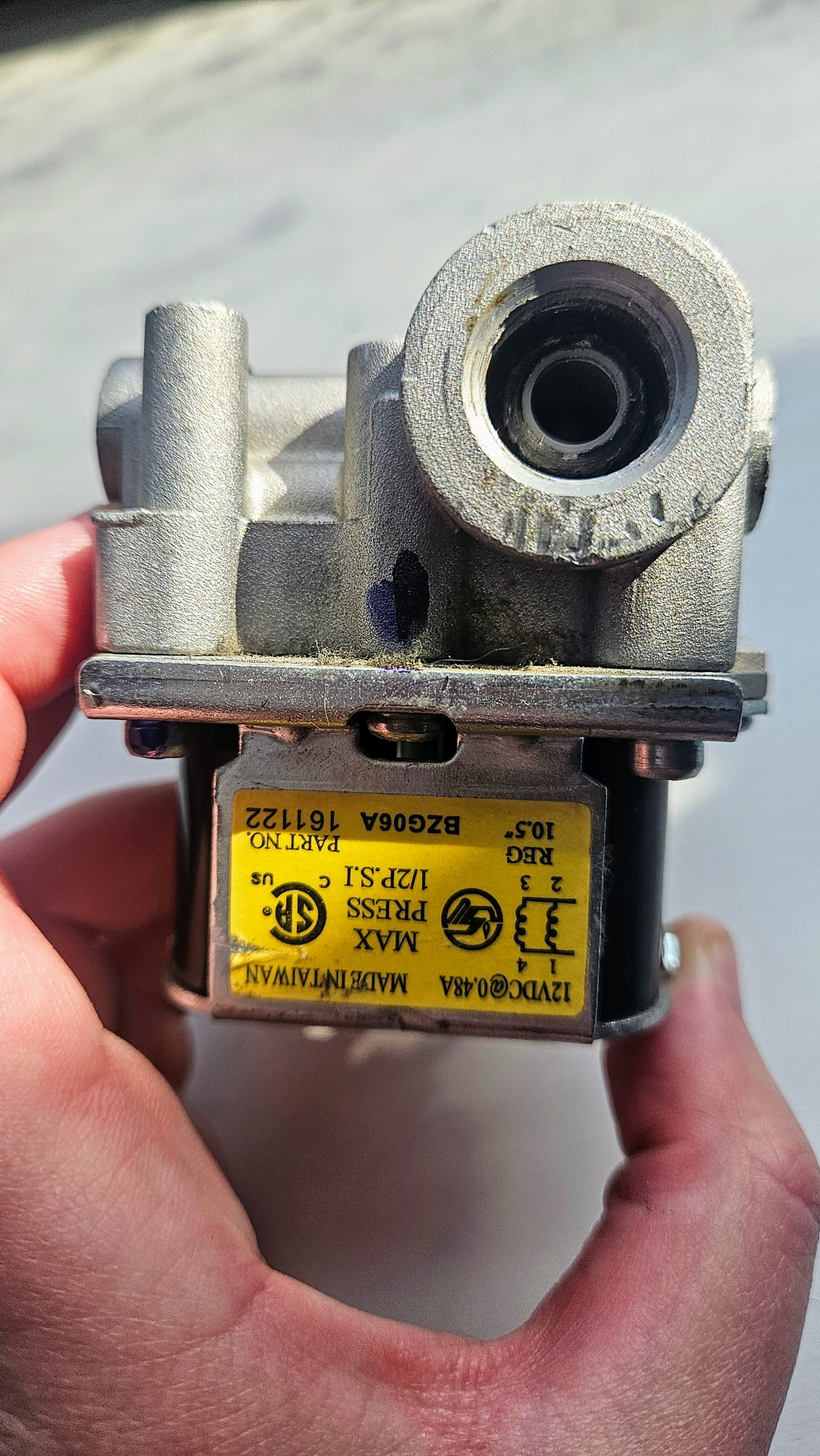
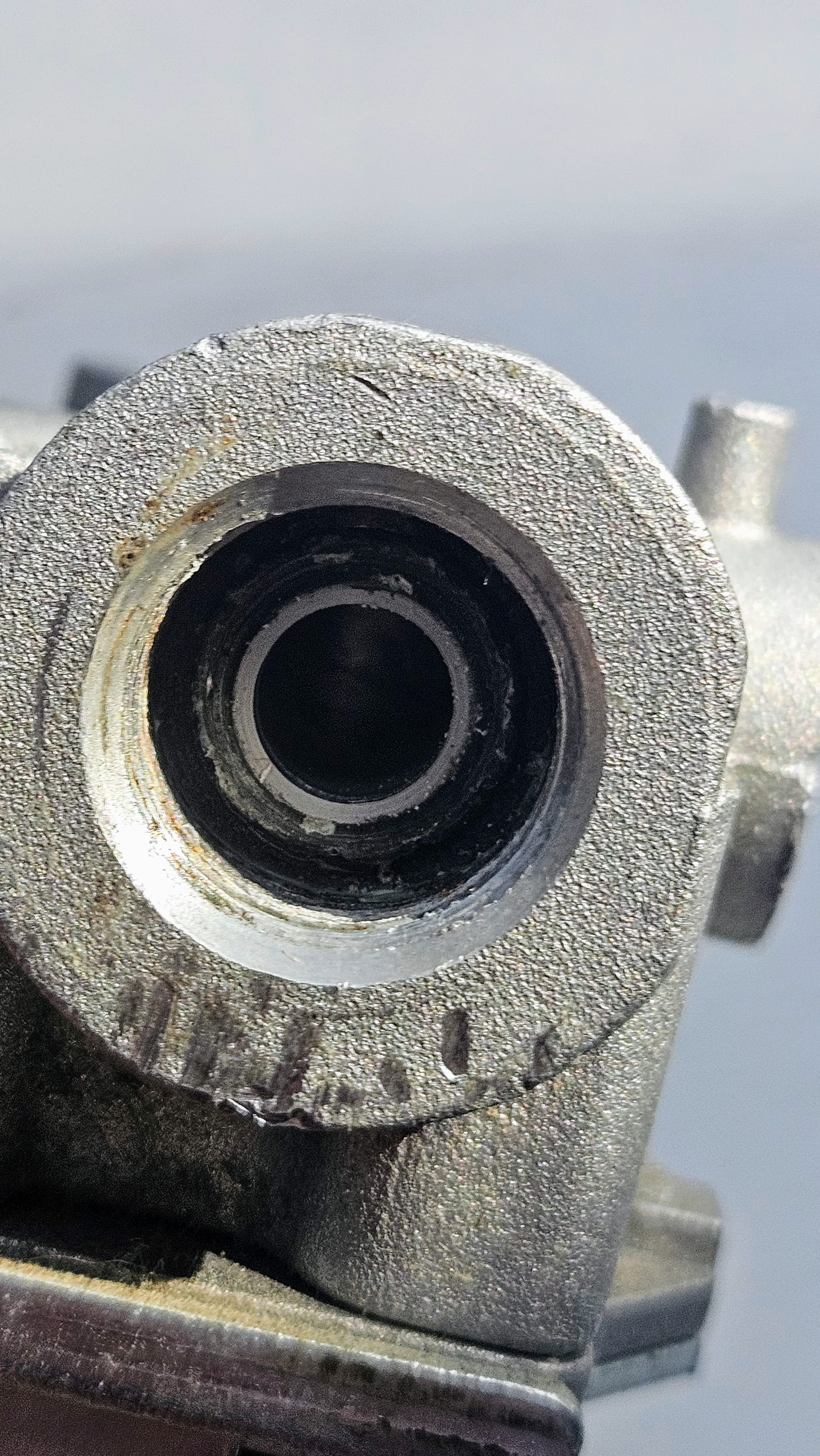
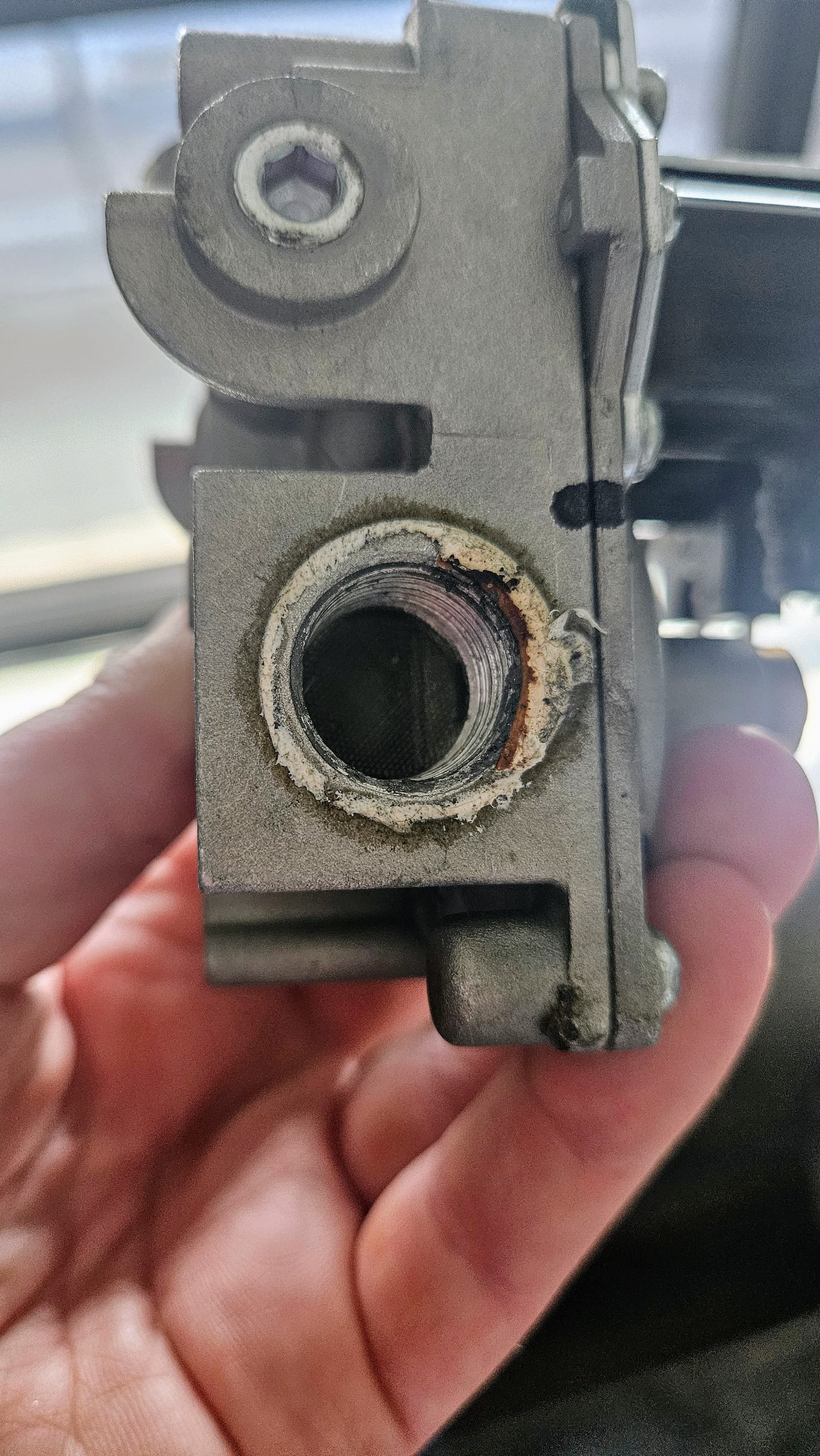
This was when we felt like we had been taken for fools by Central NH. The tech said he had "looked at the valve," whatever that means. If he had taken it off, he would have seen this. Steve told us that it's a pain to take off and you need a special wrench called a crows foot, which lots of people don't even have. So what gives? Did Central NH not have the right wrench? Did they not want to waste the time? There are two types of service techs in this world, honest and dishonest. We've had mixed results with Central NH over the years, but until this point, our biggest issue had been with the sales department, not service. We were disappointed. We spent $1000 dollars and two days displaced for them to not do what they were supposed to. They didn't replace the valve and they didn't secure the control board connections. Not to mention that they didn't pay attention to all the other loose connections Steve had found.
Steve gave us some tips on what to look for if we ever run into trouble again. His prices were reasonable – cheaper than Central NH – but at this point we were kicking ourselves that we could have gotten an entirely new furnace for less money! It happens, though, where you think the solution will be cheap and easy, and before you know it, all those "cheap and easy" solutions have added up to over $1400, not including all the extra gas from driving to and from appointments and milling around during our displacements.
The silver lining in all of this, though, is that we found ourselves a mechanic who is honest, diligent, and knows his stuff. Given that we plan to make NH our home someday, we know this will come in handy. If you're ever in the area and need some work on your RV, Steve Dana is your man.
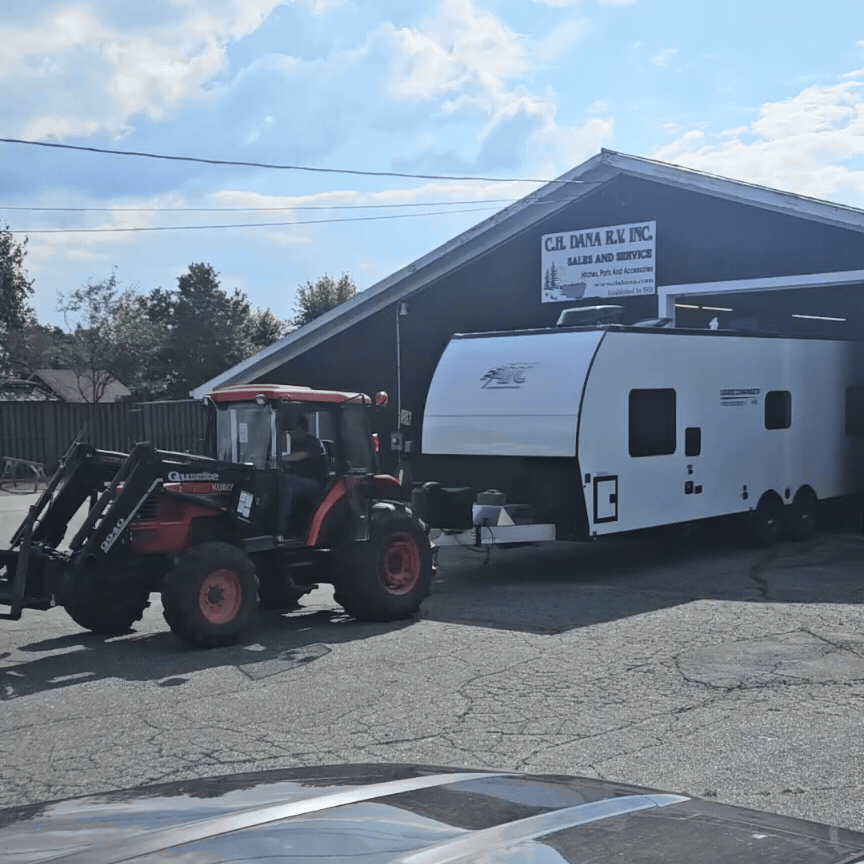
Temps got up into the high 70s that day, so we wouldn't know for sure if our furnace was working until nighttime, but we trusted these results enough to stick with our plan to head up to our next campsite, at Lake Francis State Park in Pittsburg, NH. Then we waited for nightfall.
We didn't get good sleep that night. We set our heat to 64°F so it wouldn't get too hot, but it should kick on in the middle of the night. Our inside temperature barely got that low, so we had many moments where we thought our furnace wasn't kicking on, but it was just a degree or two off from where it would. Raising the thermostat worked, and at a set point of 65°F, our furnace kicked on and off as it should.
It was a long and stressful road for what should have been an easy solution, but unfortunately sometimes things don't run smoothly. We're just happy to have our heat back as we make our way into the final few months of the year. Bring on the cool, crisp fall nights!
